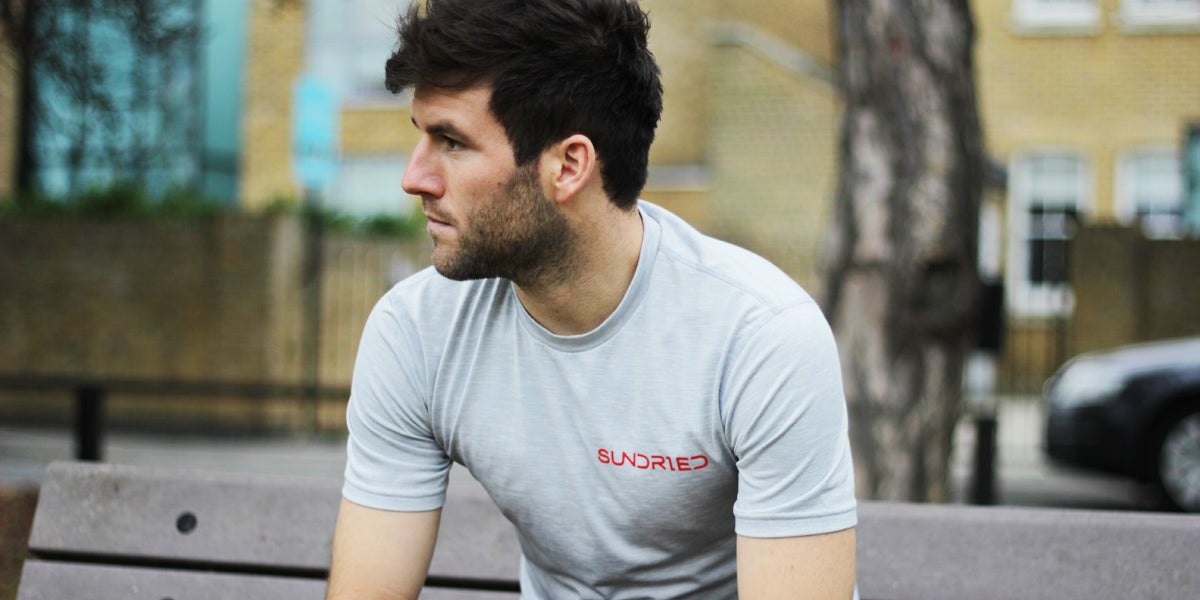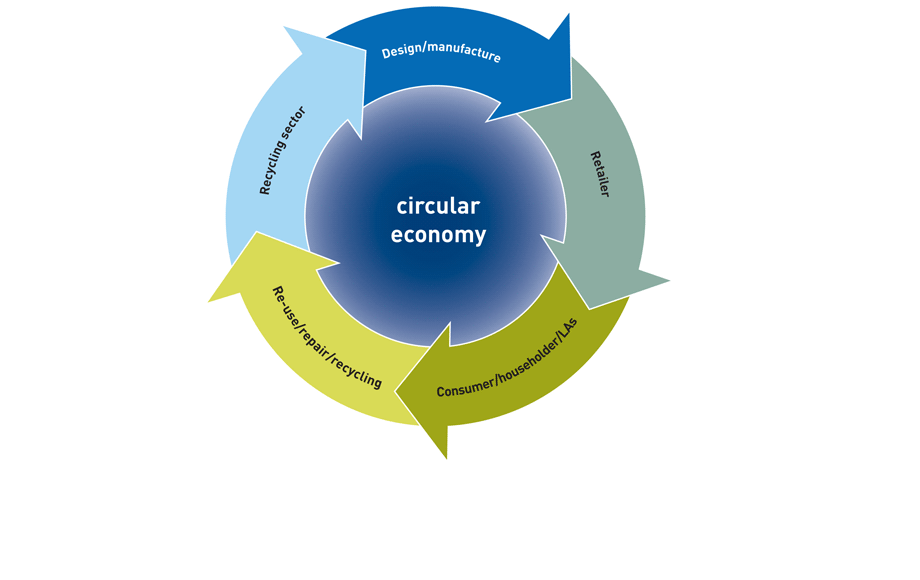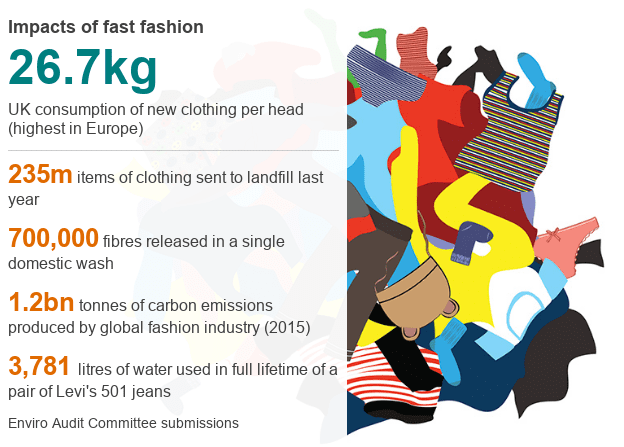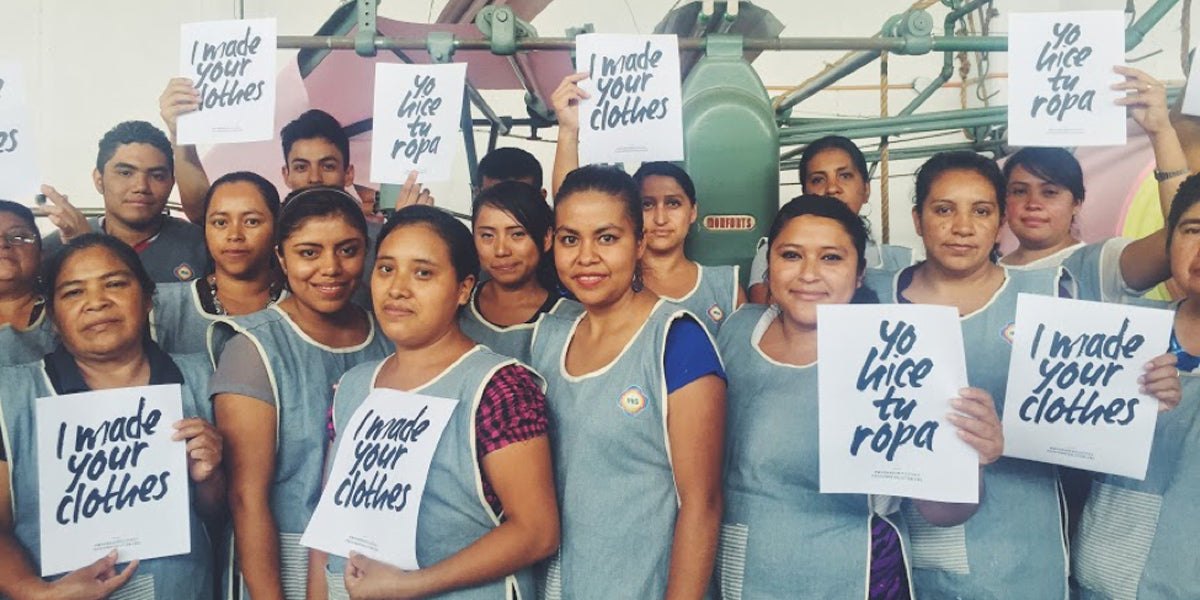Sustainable Fashion – Your Ultimate Guide

Have you been hearing the phrase 'sustainable fashion' a lot lately? You're not the only one. 2018 has been the year of the conscience as the world wakes up to the reality of the global plastic pollution crisis and the damage that we are doing to the planet. This is your ultimate guide to sustainable fashion and will answer all your questions about this important growing trend.
What is ethical and sustainable fashion?
Shockingly, the fashion industry is the world's second largest pollutant behind only the oil industry. Isn't it incredible to think about the clothes you're wearing causing almost as much harm to the planet as the drilling of oil and emissions created by all the aeroplanes, buses, cars, and motorbikes in the entire world? Stop to really think about that for a moment.
If clothing companies do nothing to change their practises, the global plastic pollution crisis as well as greenhouse gases and other toxic results will take their toll on our planet and our health. That's where ethical and sustainable fashion comes in.
Sustainable fashion is that which is produced responsibly with low carbon emissions, ideally from recycled materials, and vows to treat everyone in the supply chain fairly and with respect. This means no more sweat shops, no more textile factory disasters, and significantly reduced pollution. Not only this, it aims to educate consumers on moving towards a 'zero waste' lifestyle by not buying cheap clothing only to wear it once (or never!) and then throw it away and it stay in landfill for years to come.
Which clothing companies are ethical?
Thankfully, the sustainable and eco living movement is gaining traction day on day and there are numerous environmentally friendly clothing companies out there which are fully sustainable and ethical. Even huge corporations like H&M are striving to change their ways and begin to adopt more ethical practises and become more eco conscious.
Zara Williams is a sustainability consultant to several large brands and companies. She explains, "In my role as a sustainability consultant I advise a number of different companies on how to manage their environmental and social risks. Projects include working to improve employment conditions throughout the supply chain and monitoring and managing energy and water consumption and waste management. As we work with lots of different companies on a range of projects no day is the same which is great as it means I'm constantly learning and it rarely gets boring."
Ethical activewear brand Sundried produces beautiful activewear from 100% recycled materials including plastic bottles and even coffee grounds! Every purchase includes a donation to partner charity Water For Kids and the supply chain is fully transparent from source to sale so you know that the people who made your clothes were treated fairly and with respect in good working conditions. This is a stellar example of a sustainable fashion brand.
What is the most eco friendly fabric?
When you think fabric, which do you think of? Cotton? Polyester? Denim? You'd be surprised at just how many different fabrics and fabric blends there are available these days. One type you may not have thought about is recycled fabrics. These ethically-sourced and super green eco materials are made in sustainable processes from raw materials like coffee grounds, bamboo, fruit, and even other materials like plastic.
Recycled fabrics are very eco friendly as they produce less than a quarter of the carbon emissions of polyester and a third of the emissions of cotton. Additionally, producing cotton and manufacturing it into the clothes you're wearing today uses a lot of resources such as water and energy. The production of recycled materials and eco friendly fabrics uses far less water and is all-round better for the environment.

The Sundried Olperer T-Shirt (pictured above) is made from 100% recycled coffee grounds, a super eco friendly fabric.
Why is sustainable fashion important?
There is a new phrase being thrown around the media at the moment which is 'circular economy'. When you think about a basic economy, we do three things: make, use, dispose. This is particularly prevalent in the fast fashion industry in which cheap clothing is mass produced and sold, bought at rock bottom prices by people who don't think anything of it, and then thrown in the bin and in turn taken to landfill. This is hugely damaging to the environment and is not sustainable, that is to say we cannot continue like this.
Alternatively, a circular economy is one which goes against this age-old practice by introducing a new method whereby we keep resources in use for as long as possible, extract the maximum value from them whilst in use, then recover and regenerate products and materials at the end of each service life. To apply this to ethical activewear, this would mean investing in a piece of high quality clothing like a running vest made from recycled materials, taking care of it by washing it carefully and not drying it in the extreme heat of a tumble dryer, and using it for several years without buying a new one.

Infographic courtesy of WRAP
Sustainable fashion is important because a non-circular economy cannot live on indefinitely and eventually we will run out of resources and find ourselves with an unmanageable amount of landfill and waste on our planet. In a circular economy and with the likes of sustainable fashion, it is possible to continue indefinitely in a manageable way that is not damaging to the environment or the health and well-being of people.
Fast fashion
'Fast fashion' is a term that describes how quickly clothing is mass produced, marketed, and bought in the current market. Clothing retailers like Primark are currently under scrutiny for selling clothing so cheaply as this is said to fuel the fast fashion frenzy and encourage shoppers to buy lots of cheap items, not care for them, and then discard them after only a few wears.

Infographic courtesy of BBC
Why is fast fashion bad?
There is evidence to show that:
- British shoppers buy far more new clothes than any nation in Europe.
- People are buying twice as many items of clothing as they did a decade ago.
- Fish in the seas are eating synthetic fibres dislodged in the wash.
Cheap clothing encourages a 'throw away' society where everything is disposable. This is bad for the environment as landfills are filling up with rubbish and the oceans are filling up with plastic. The more we produce and consume, the more our planet suffers.
It is not only our environment that is suffering from fast fashion. Have you ever stopped to think about who exactly made those cheap t-shirts for sale in Primark? It's time for big brands and large clothing companies to be more transparent about their production chains and how their workers are treated.
This is why the slow fashion movement is so important and is also why the campaign 'who made my clothes' was created.

Image courtesy of Trusted Clothes sustainability blog
What is the slow fashion movement?
The 'slow fashion' movement is a new campaign that aims to educate consumers on their purchases and to question the ethics of the fashion they are buying.
Sustainable fashion is the future
The most influential part of modern life, whether we like it or not, is money. Until this changes, animals, humans and the environment will continue to be abused in the name of profit. Socially responsible companies aim to maximise long-term profits whilst balancing a respect for wider social issues.
It’s easy to think that just one person won’t make a difference.
The faster ethically responsible companies grow, the more pressure they will place on other companies, investors, and banks to move away from unethical practices. As irresponsible practices are being forced under the spotlight, public concern is growing over the treatment of animals, people and the environment, making companies involved in these areas less viable in the long term as we become more educated about how our products are made.
Socially responsible investments are now more widely recognised as safe long term investment strategies. The combination of consumer, investment and business pressure can bring about lasting change – change which will benefit people, animals and the environment.
The Ethical Consumer 2015 report found we’re starting to support ethical products: the value of the ethical market has grown from £35 billion to £38 billion.
Sustainable fashion market analysis
The fashion industry isn’t all doom and gloom. Ethical fashion is no longer just a niche sector; it’s becoming part of the mainstream fashion industry.
- 48% of US millennial consumers choose brands that actively support social causes (BCG, 2014)
- 50% of US adults identify as ‘green consumers’
- 13% identify as ‘super green’ meaning they purchase organic and sustainable products, are informed about the products they buy, and expect retailers to keep environmental damage to a minimum (Forrester, 2013)
Delivering premium style and technical function in an ethical way requires extensive research and extra time, but good things come to those who wait.
"Eco fashion is now a $5 billion per year industry, whereas just ten years ago it hadn’t even cracked $1 billion. This might still be a small share of global revenue, but its growth signals a major shift."
Sustainability issues in the fashion industry
There are many varied sustainability issues in the fashion industry. These can be put into two main categories: environmental factors and social factors;
There are many environmental issues in the fashion industry: chemicals, waste, pollution, energy, and water.
There are also many social issues: working hours, modern slavery, child labour, regular employment, and healthy & safety.
It's very important to question the ethics of the brands you support and the clothing companies that you buy from. Question all of the above aspects and make these large corporations face the hard facts that this is not sustainable long term and something has to change, and change soon.




